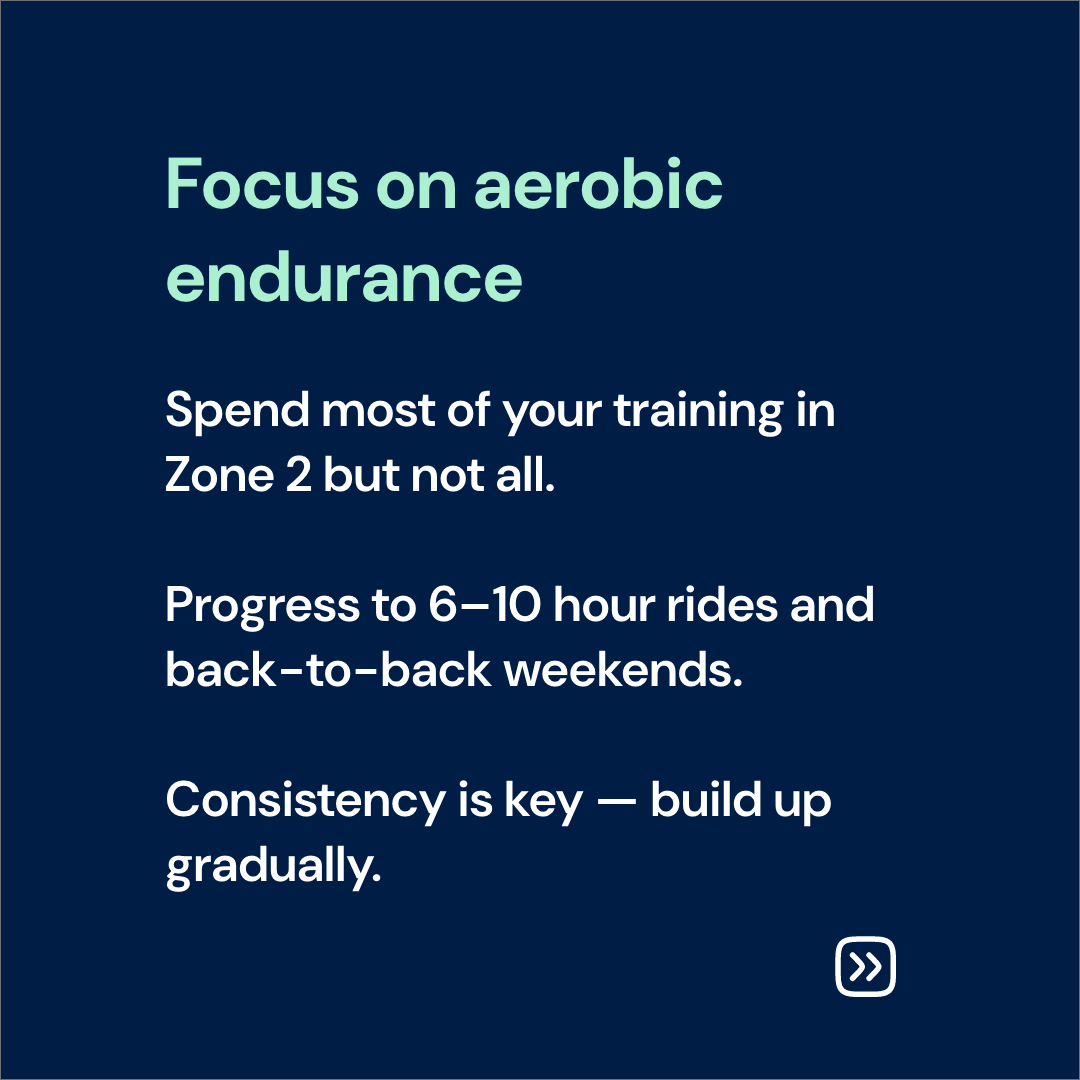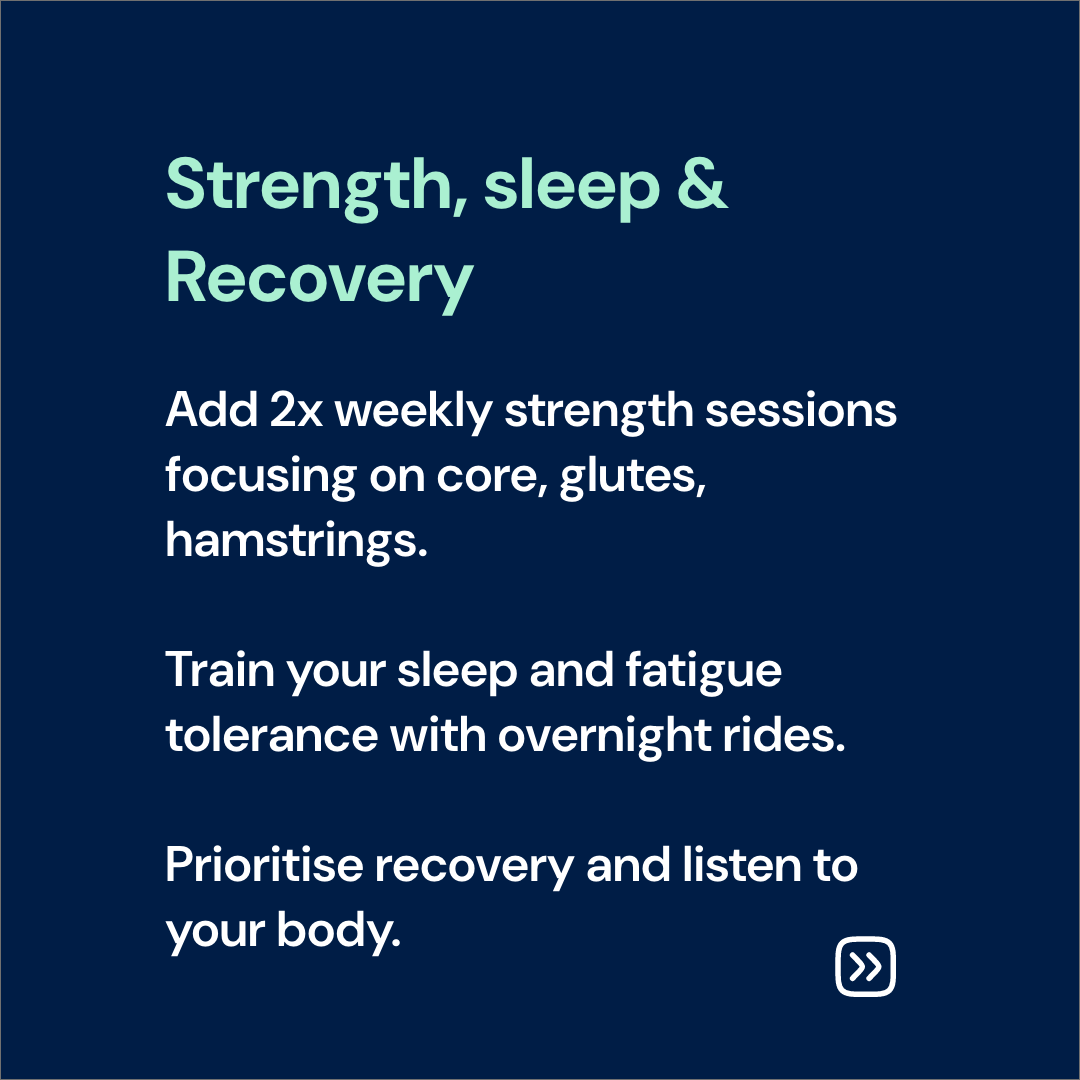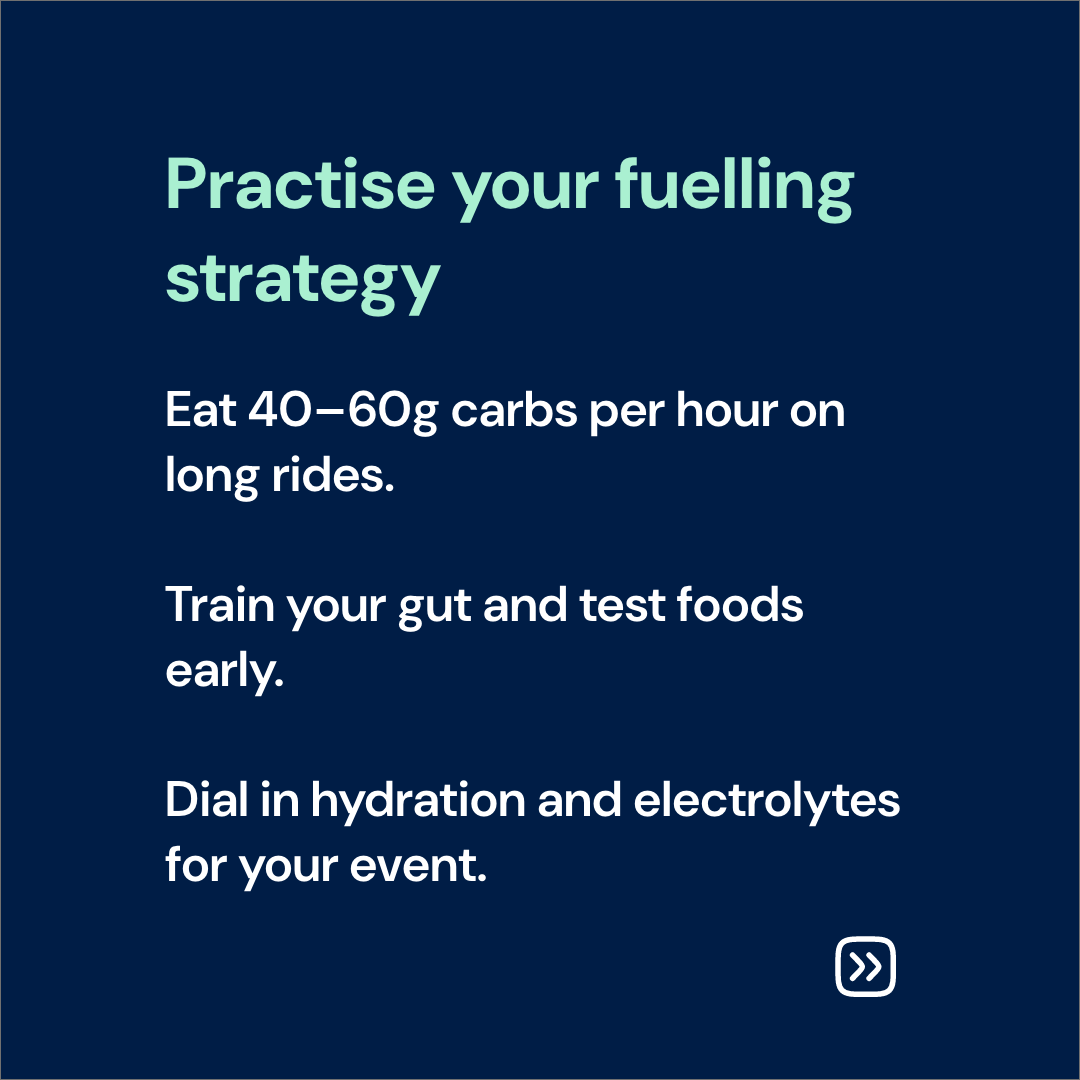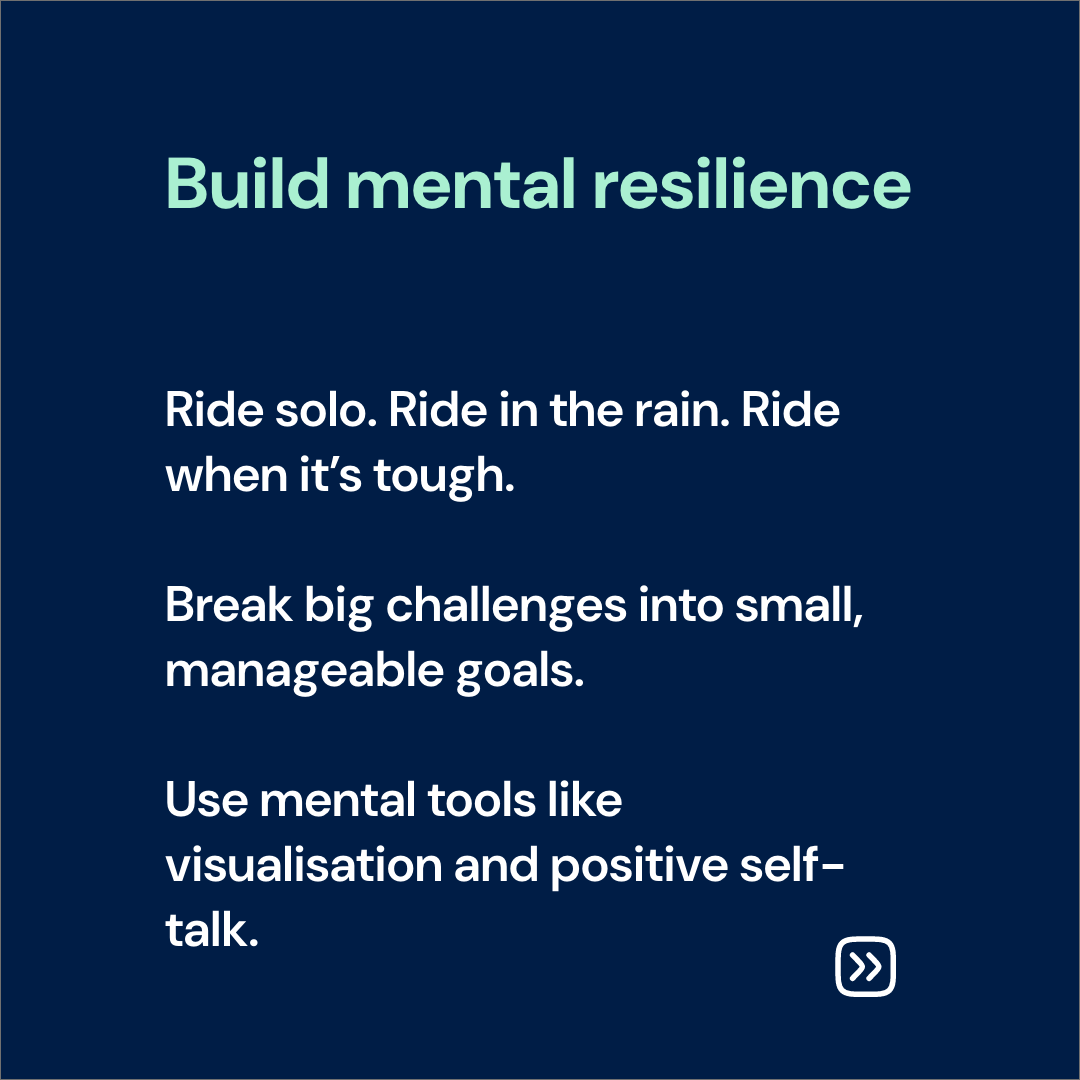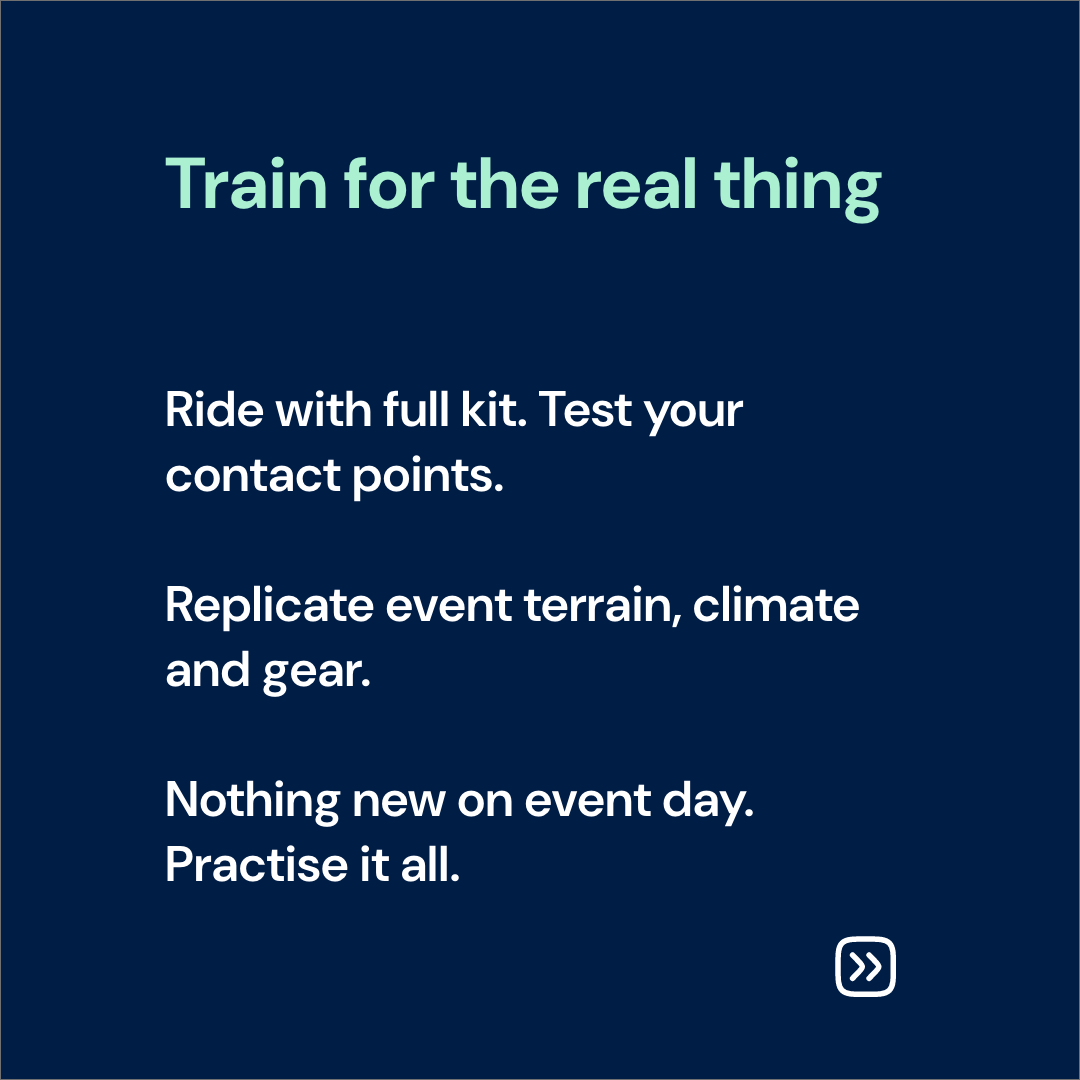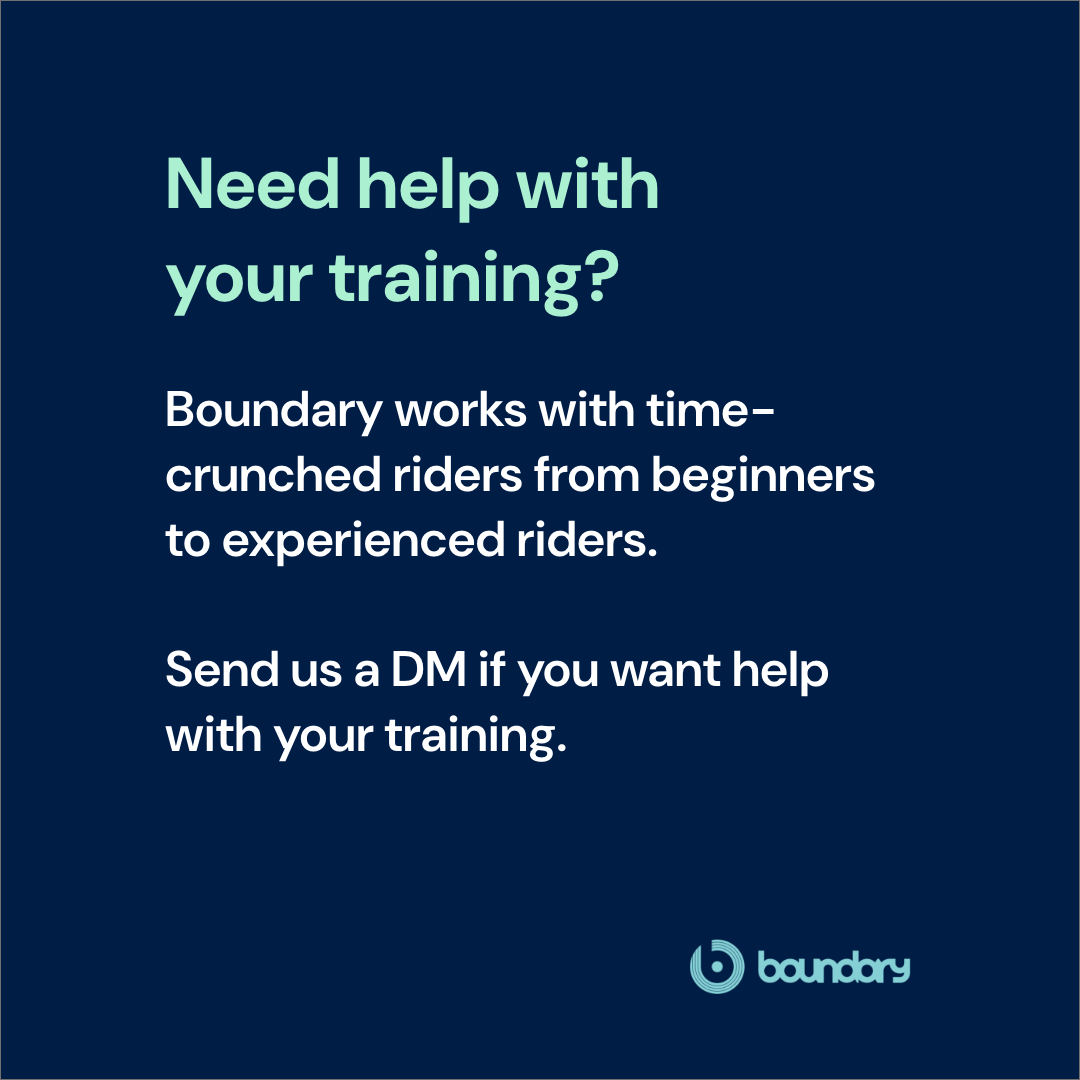1. Endurance and aerobic base development
Ultra distance events demand the ability to ride at low to moderate intensity for long hours, day after day. The foundation of training is building aerobic endurance through long, steady rides predominantly in Zone 2. Understanding why easy rides matter helps riders commit to this low-intensity foundation work. Progressively increase ride duration over time, starting from four to six hours and building up to rides of ten hours or more. Include back-to-back long rides on weekends to prepare for cumulative fatigue.
2. Structured periodisation
Training should follow a structured plan that cycles through phases of building and recovery. Typically, this includes three weeks of progressive overload (increasing duration and volume by around 10-15% each week) followed by a lighter recovery week. In the final phase before the event, include a gradual taper to allow full recovery while maintaining sharpness.
3. Strength, durability and conditioning
Off-bike strength work should be incorporated two to three times per week, focusing on core stability, glute activation, hamstring strength, and lower back endurance. Exercises such as single-leg deadlifts, planks, and rotational core work build resilience. On the bike, include low-cadence, high-torque intervals (e.g., 10-minute blocks at 60rpm) to develop muscular endurance.
4. Fuelling, hydration and digestion practice
Nutrition during ultra events is critical. Training rides must be used to practise eating and drinking strategies. Riders should aim to consume 40-60g of carbohydrates per hour and test different foods and drinks to understand what the gut tolerates under stress. Hydration and electrolyte balance should also be monitored and adapted depending on climate and duration.
5. Sleep management and fatigue exposure
Events that span multiple days require strategic sleep management. Training should occasionally include overnight rides or rides with sleep deprivation simulation to prepare the body and mind for disrupted sleep patterns. Understanding personal limits and recovery needs is key.
6. Recovery and fatigue monitoring
Managing recovery is essential. Use resting heart rate, heart rate variability, perceived fatigue scores and general wellness check-ins to guide training load. Science-backed recovery protocols provide specific targets for sleep, nutrition, and monitoring metrics. Include easy recovery rides, flexibility work, and adequate sleep as core parts of the programme.
7. Mental preparation and psychological resilience
Mental toughness can be trained like physical endurance. Incorporate sessions that expose the rider to adversity: riding in poor weather, long solo rides without music, dealing with navigation challenges. Mental training strategies like visualisation and staying present build the resilience needed for ultra efforts. Mental skills such as visualisation, positive self-talk, and breaking down challenges into smaller tasks should be practised deliberately.
8. Equipment, comfort and logistics planning
Comfort is critical for success. A professional bike fit should be undertaken early. Beyond the miles, ultra-distance preparation addresses the complete challenge including bike fit, nutrition, electronics, and sleep management. Regular training rides should test saddle, handlebars, clothing, lighting, and navigation equipment. Identify and address issues with contact points (hands, feet, saddle) during training to avoid problems during the event. Pack lists, contingency plans, and mechanical repair skills should also be part of preparation.
9. Specificity and event-specific preparation
Training must reflect the demands of the event. If the course is hilly, incorporate extensive climbing. If gravel or poor road surfaces are expected, ride similar terrain. Practise carrying full gear if bikepacking is involved. Train in similar temperatures and conditions wherever possible. UK-specific audax training plans integrate calendar events strategically. Learn more about audax coaching for British brevets.
As the event nears, the focus will shift towards more specific simulations, including night riding, sleep management, and terrain replication. For multi-day events specifically, energy management and pacing strategies determine success or failure. Ultimately, consistency over many months — not perfection in any single week — is what prepares a rider for the demands of ultra distance events.

